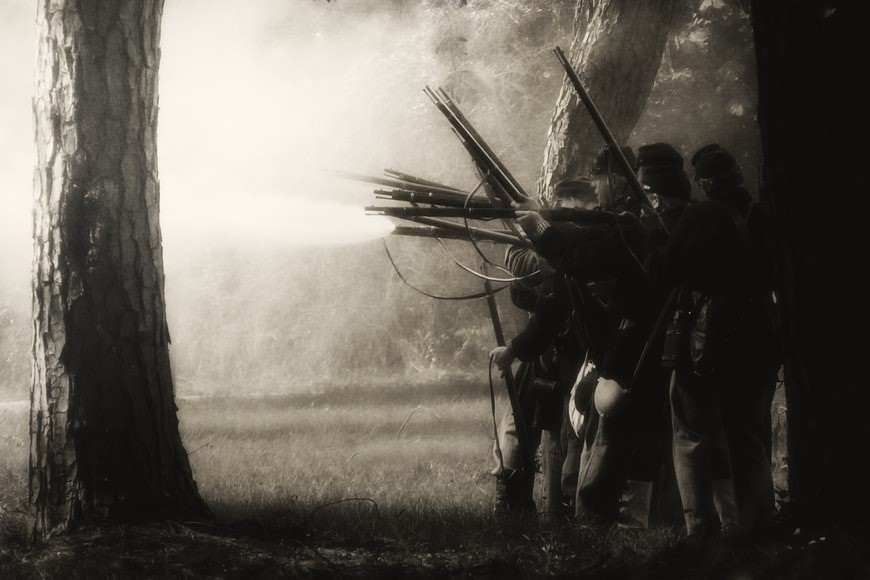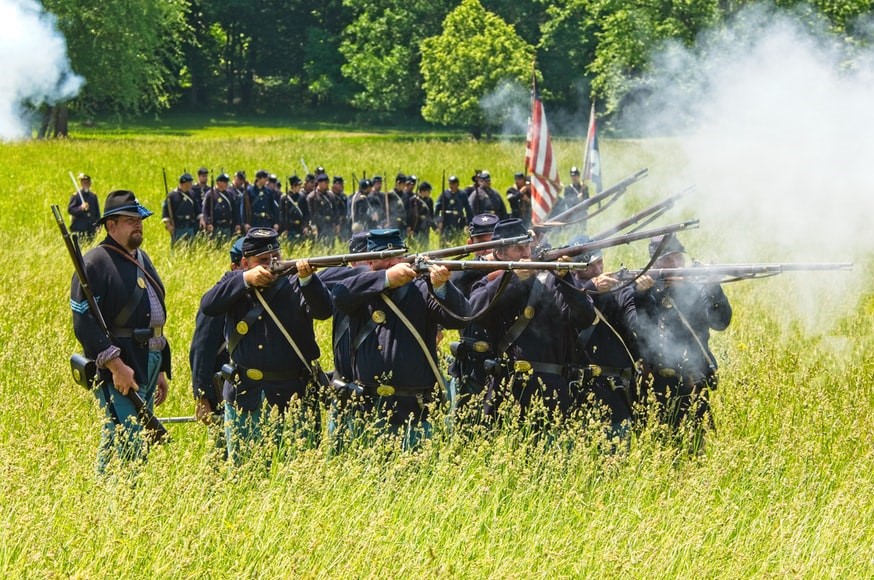This is a free essay sample available for all students. If you are looking for essays for sale on the topic “Was the Civil War Inevitable”, browse our private essay writing samples.
It is no secret that the American civil war is one of the most notably horrific events in the history of the United States. We have read story after story on the role of slave labor in creating a rift between the North and the South, the attempts to find a peaceful middle ground with the Missouri compromise and the Kansas-Nebraska Act, the election win of President Abraham Lincoln, and the secession of 11 Southern states that eventually led to the war.
But come to think about it, was the Civil War inevitable? Was there anything that could have been done to prevent it? If not, what were the breaking points that pointed to the certainty of war? The author in the sample essay below delves deep into these questions and finds her way to a fitting conclusion.
Writing an essay about the Civil War? Let us help you. Contact us to find out about our affordable essay writing rates.
Was the American Civil War Inevitable?
It all started with the seemingly harmless idea of using African-American slaves as cheap labor in the various industries and businesses in the Southern states. What was initially intended as a strategy to accumulate more wealth by cutting down costs became one of the most widely-contested and polarizing debates in American history.

The road to the actual Civil War is long, filled with numerous well-intentioned attempts to resolve the escalating differences and tensions between the North and the South. Just when it seems like a peaceable agreement has been reached, there is a change in the turn of events, and the agreement turns out to be a Band-Aid solution to a problem that has never found a solid resolution. From ideological differences to many debates that led nowhere, I believe that Civil War was inevitable. Yes, up to a certain point in history, there were chances to steer the boat elsewhere, but there were pivotal moments and decisions that made this a sad certainty.
The most obvious reason why the Civil War was a tragic reality waiting to happen was the longstanding debates on and tension over the existence of the slave trade, particularly in the South. Imagine yourself in the midst of a never-ending argument. It will feel like being submerged in a pot of water being boiled slowly. At first, the opposition doesn’t seem concerning as there weren’t plenty at the beginning. This was the case for the reaction of the North towards the slave empire in the South. There were only a handful of abolitionists at first.
However, because the situation was sustained, more people took notice over time and like-minded advocates of the anti-slavery moment found one another. Their voices united and became magnified, signaling a slowly-growing opposition. The attempts at finding consensus, such as the Missouri compromise, were just like human hands fanning the smoke from a boiling pot while the flames remain steadily warming up the water. While there was an attempt to cool down or reduce the heat, the key issue continued to be in existence. So while the boiling may slow down, the water will still eventually boil.
What were the “bubbles” that formed on the water’s surface, signaling the start of the boil? In the story of the Civil War, it was the election of Abraham Lincoln as President of the United States. With Lincoln publicly announcing his presidential agenda of finally abolishing slavery, the Southern states fiercely protested. As if to publicly demonstrate their disagreement with Lincoln’s proclamation, eleven slave states established their own federation and called it the Confederate States of America, also known as secession. Predictably, the Union condemned the move as illegal, which led to the inevitable war between the North and South.
Was there anything that could have been done to change the outcome? Some feel that if there was stronger leadership and excellent mediators at the time, something could have been done in any of the numerous discussions to find a solution that works for both ends. Perhaps if the Union just let the Southern states secede instead of bringing them back, war could have been avoided.
However, with all of these factors considered, I still believe that war was inescapable because the tension was never resolved. Even with good leadership and a workable compromise, you will always have parties who will vehemently oppose and challenge the middle ground. Abolitionists will always uphold their convictions and so will slave owners. The fact that what they each stood for belonged on opposite ends of the spectrum means that meeting in the middle would be a failure to stand by these beliefs.

Also, it wasn’t just that they felt passionate about their views; it also made sense in their culture on a practical level. For the Southerners, having slaves made sense because they owned plenty of plantations and farms that required a lot of manual labor. In the North, it’s a completely different picture as they were already industrialized and no longer required as much manual work as before.
Conclusion
At the end of the day, my belief is that given the many factors playing into the Civil War, there was ultimately no way bloodshed could have been avoided. The only way for war not to break out would be for one side to acquiesce to the other’s point of view. It would have necessitated a choice between completely embracing slavery or completely abolishing it, with no opposition from any state.
FAQs
When did the Civil War become inevitable?
There are two key pivotal moments in history where war became nearly a certainty. The first was Abraham Lincoln winning the presidency. It was because of his public announcement of plans to completely eradicate slavery that the Southern states reacted. While there were plenty of discussions going around prior to this, a public announcement by the highest and most important figure in the country signals a serious intent for change. This most likely rattled the South and caused them to move reactively. Another breaking point is the secession of the eleven slave states and the decision of the Union to bring them back into the fold.
How was the Civil War unavoidable?
The simple answer to this is unresolved conflict. With states’ need to keep moving on and pursuing their own agendas despite not finding resolution, something was bound to break. Opposing ideas will never find a happy medium, and if you are passionate about your convictions, compromise will be hard to accept as a long-term solution.